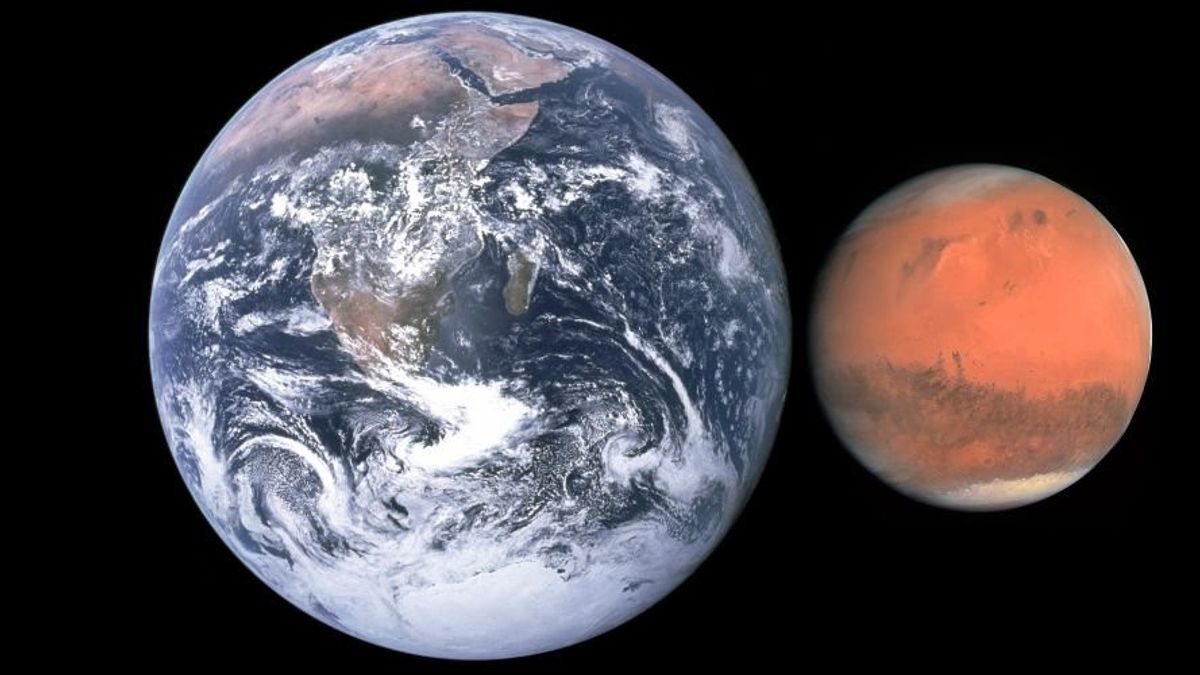JAKARTA - Mars is one of the most interesting planets in the Solar System. But how does its size compare to Planet Earth? Regardless of how much technology advances or what new information we learn, space is constantly presenting new questions for humanity to answer.
In recent years, much space-related research has been devoted to Mars. Of all the planets in the Solar System, Mars is widely considered to be one of the most interesting. Not only is it one of the closest planets to Earth, but it is also the most habitable.
Mars has a solid, rocky surface, frozen water, and may have been home to ancient life. There's a lot of work that needs to be done before humans can live or even visit Mars, but that hasn't stopped researchers from finding ways to make it happen.
This increased interest in Mars often raises many questions about the Red Planet. One of the most frequently asked questions is very interesting: Is Mars bigger than Earth? If humans were looking for other planets to live on, we'd be looking for something that's the same size as or slightly larger than Earth — right?
As it turns out, Mars is no bigger than Earth. In fact, it is much smaller. Mars has a radius of only 2.106 miles. By comparison, Earth has a radius of 3.958 miles and is about twice the size of Mars as a whole. As NASA explains, "If Earth were the size of a nickel, Mars would be as big as a raspberry."
SEE ALSO:
Compared to other planets in the Solar System, Mars is one of the smallest of all its neighbors. Even the second smallest after Mercury. Mercury is substantially smaller than Mars' already tiny footprint, measuring just a radius of 1.516 miles. However, it is the only planet Mars that has a size advantage over it.
Things are really put into perspective when measuring Mars to Saturn and Jupiter (the two largest planets in the Solar System). With a radius of 36.184 miles and 43.441 miles, respectively, Mars has no candle to the two gas giants of the Solar System.
Is Mars smaller than the other planets? Certain. Was that a big blow against it? Not one bit. Mars is far from a perfect planet for future people to explore/live on, but it is much better than its bigger siblings.
Saturn and Jupiter undoubtedly have more space. However, their 100 percent gas composition means that they won't be visited by humans anytime soon. The old saying goes, 'size doesn't matter.' In the case of Mars, that is completely true.
The English, Chinese, Japanese, Arabic, and French versions are automatically generated by the AI. So there may still be inaccuracies in translating, please always see Indonesian as our main language. (system supported by DigitalSiber.id)

















